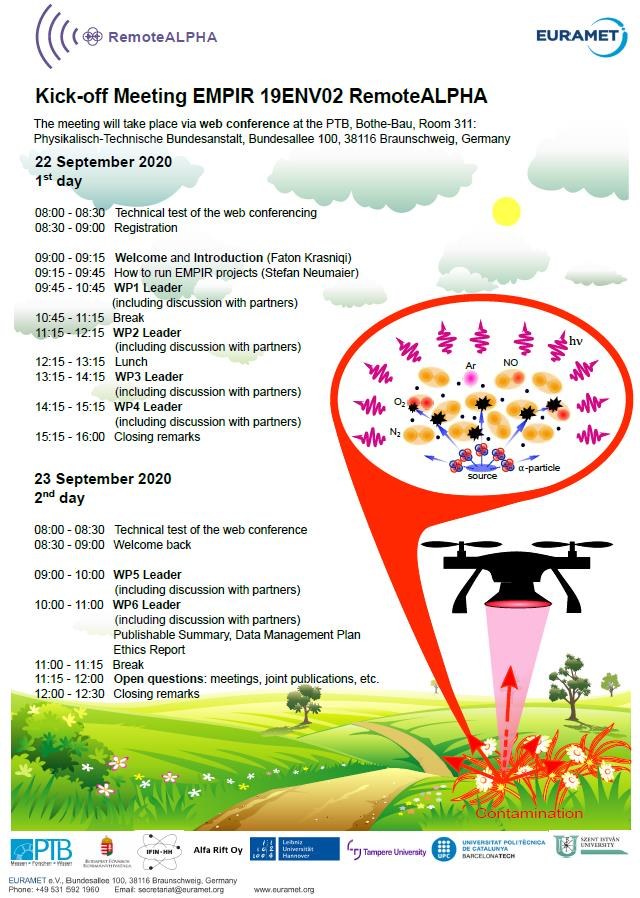Kick-off meeting of the EMPIR 19ENV02 RemoteALPHA
Sep 23, 2020
The kick-off meeting of the project RemoteALPHA taken virtually place the 22nd and the 23rd of September 2020. The project ‘Remote and real-time optical detection of alpha-emitting radionuclides in the environment’ received funding from the EMPIR programme, co-financed by the Participating States, and from the European Union's Horizon research and innovation programme. Arturo Vargas, member of the DRM group, is the leader of the WP3.
Of all nuclear decay products that may foreseeably be released into the environment, alpha particles present the highest overall risk to life. However, no detection system is in place capable of quantifying wide-scale contamination that could lead to emission of this type of radiation. For incidents such as terrorist attacks or transportation accidents, the best emergency response currently is evacuation. Also, area monitoring using handheld devices is inaccurate, slow, and places emergency service personnel at risk.
The project will develop optical systems capable of remotely detecting and quantifying wide-scale contamination by alpha particles. Novel methods based on air radio-luminescence will be developed, including prototype mobile systems able to map alpha radiation levels in real-time. Aerial monitoring systems using drones will be developed and evaluated, and the feasibility of a laser-induced fluorescence spectroscopic method studied. Engagement with relevant standards-making, radiation protection and industry bodies will follow. The measurement infrastructure developed in the project will, thereafter, help surveillance systems to provide rapid, coordinated and effective responses to emergencies involving dispersion of alpha-emitting radionuclides in the environment. Emergency teams may then be more precisely guided to people affected, while the scale of evacuations can be aligned more closely to risks of harm.

Share: